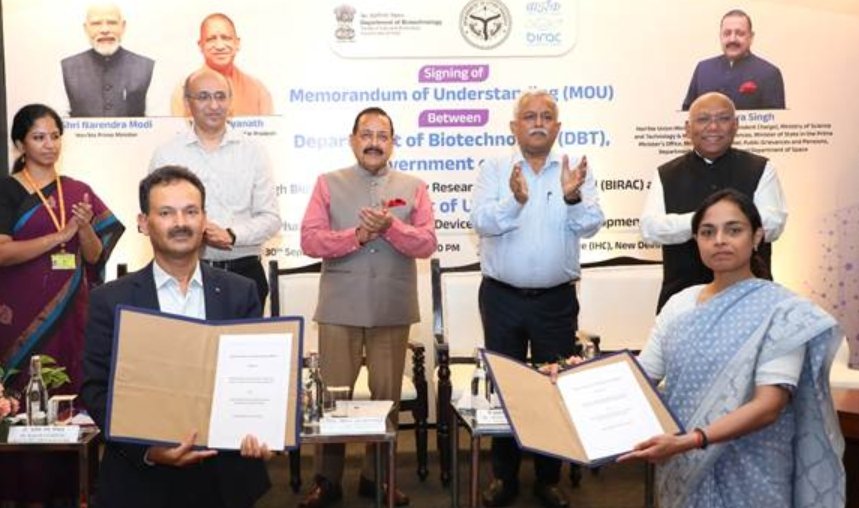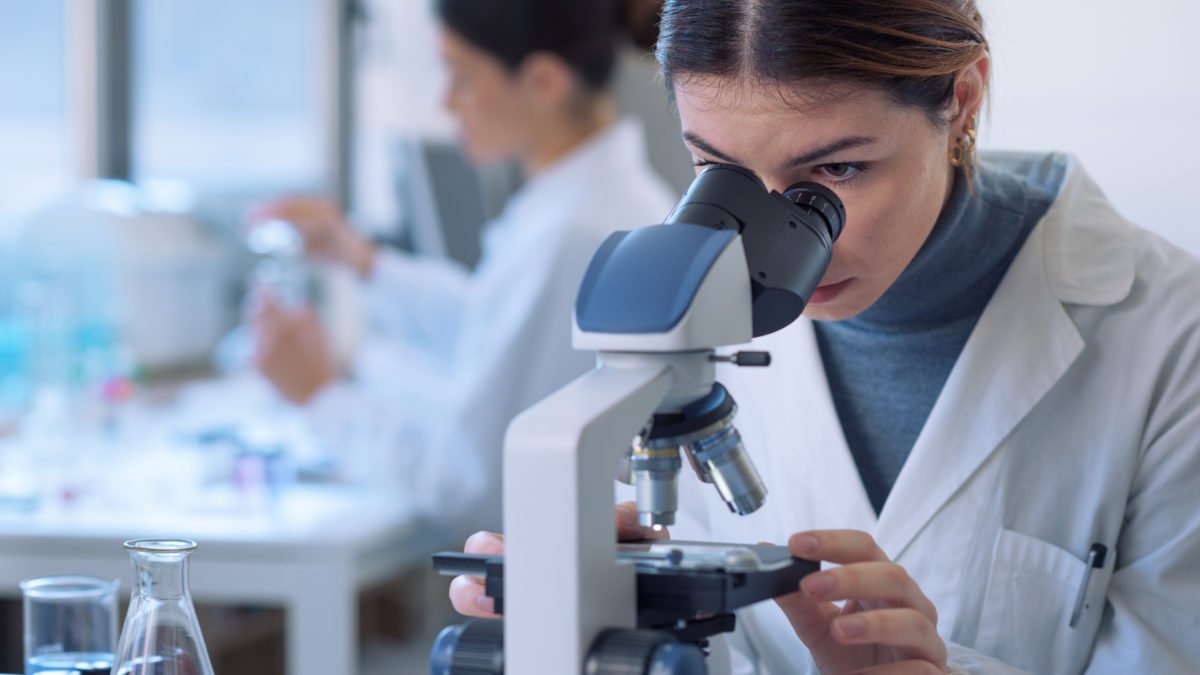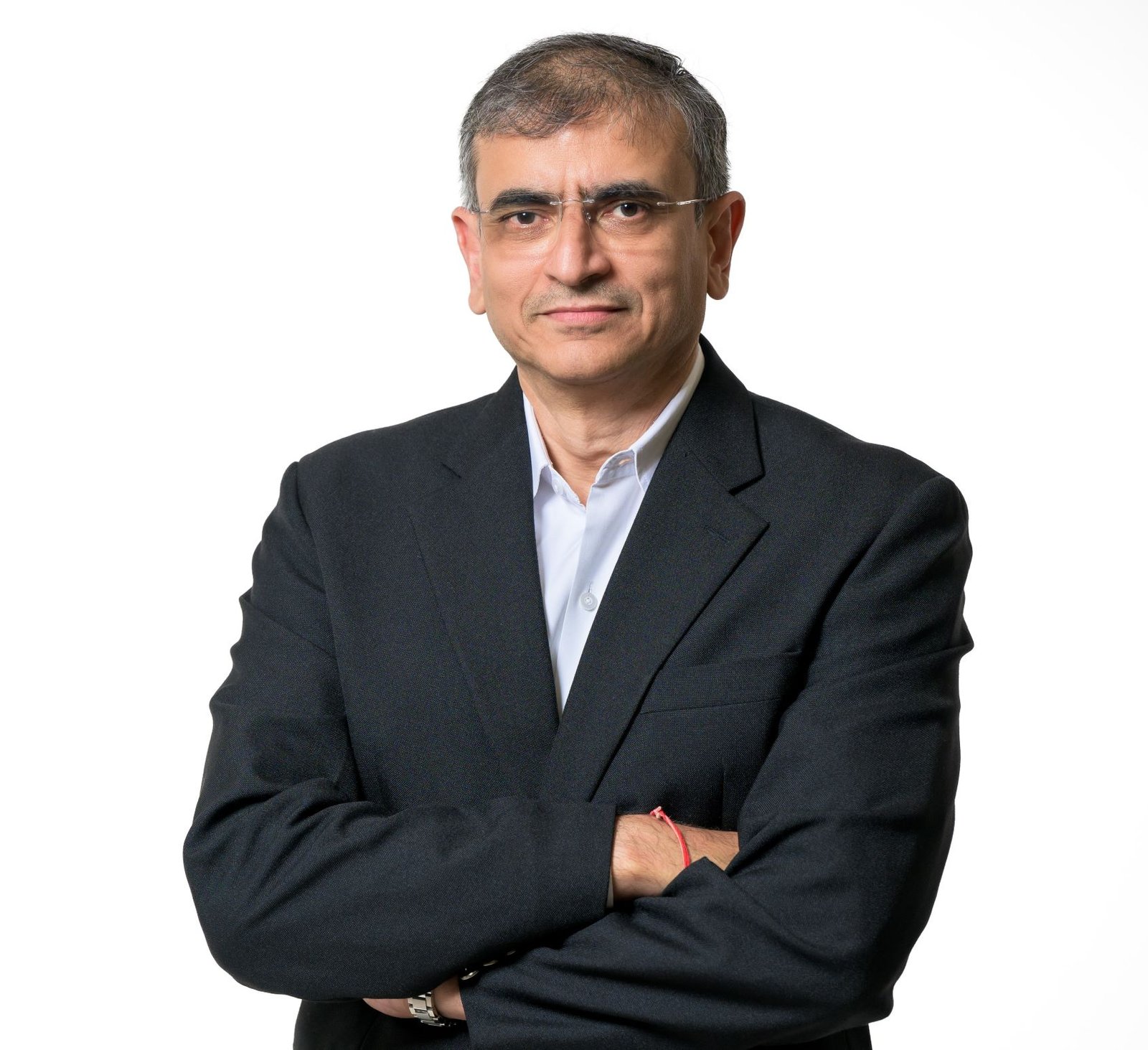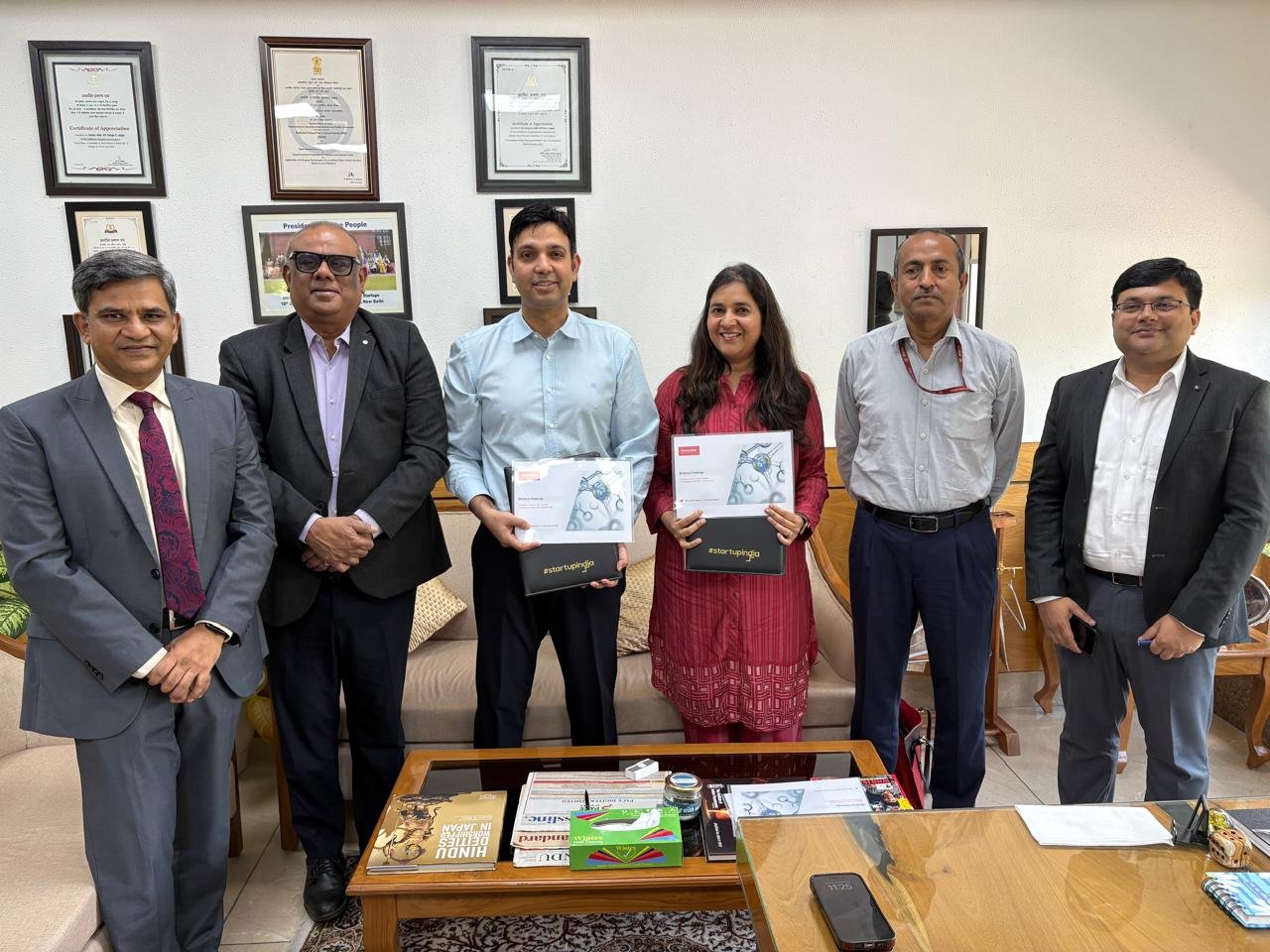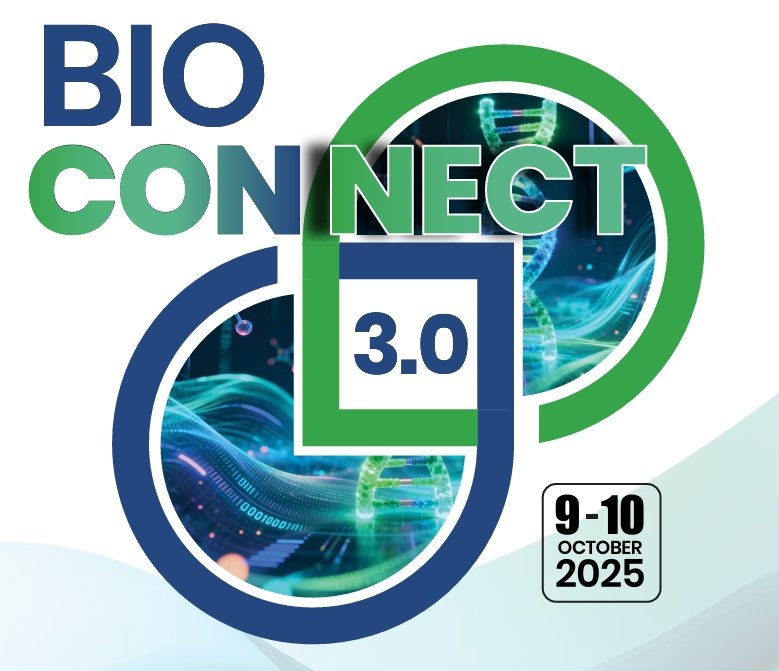Mumbai: Biotech projects incubated in India’s first DIY Bio Lab and Bioincubator at BioRiiDL
July 13, 2017 | Thursday | News
Biotech projects incubated in India’s first DIY Bio Lab and Bioincubator at BioRiiDL showcase their projects to compete for funding.
Source: IndianWeb2
After the successful launch of tech start-ups incubated at RiiDL, Somaiya Vidyavihar launched BioRiiDL an incubation cell for biotechnology start-ups and a DIY bio lab. BioRiiDL aims to nurture innovation and entrepreneurship in various aspects of Bio Technology.
To encourage and support this initiative Bio RiiDL has set up DIY BIO LAB, a space where biologists can come, execute their ideas and innovate, even after completion of their studies, they can come and work on their own projects and a bioincubator where potential projects can be taken into the market.
The BioRiiDL will facilitate 100 students in the first year.
This is the first DIY Bio lab in India, students will have access to mentoring from Scientists and Experts, access to investors via RiiDL, a chance to become a part of global discussion biologist group.
Applications for the bio-incubator are accepted year round. A screening committee evaluates the applications on several criteria—technical merit, proof of expertise, economic viability, funding and compatibility with the incubator. Selected start-ups are provided lab and office space, high-end equipment, scale-up facilities, technical support and centralised utilities for process development to help the innovators mature their ideas and attain commercialization.
The first Bio-entrepreneurship Incubation Program by BioRiiDL announced in May 2017, received 33 applications from across India including Delhi, Chennai, Hyderabad, Kolkata, Bhopal and Mumbai. 12 Teams formed from these applications participated in a pitch competition. From these 12 teams, 5 teams were selected and given the opportunity to pitch for the final incubation. These teams were also given the opportunity to interact with mentors. These mentors helped them to formulate their idea realistically.
The winner’s will be incubated at BioRiiDL Labs for next 6 months.
Five shortlisted start-ups were given 7 minutes each to present their ideas to a panel of biotech experts and investors to win funding and further access to the BioRiiDL Labs. After their pitch, the start-ups had to answer questions raised by the biotech experts and investors present.
Supported by funding from Somaiya Vidyavihar,
The first prize was won by Team INDRA
Name of the Founders - Krunal Patel, and Amrit Om Nayak
College/ Institute Name – K.J.Somaiya College of Engineering, Thiagarajar College of Engineering
Department - Mechanical
Post Graduation - University Of Washington, University of Washington
Name of the start-up - INDRA (Water recycling with monitoring & analytics)
Indra provides onsite wastewater recycling & reuse backed by Industry first smart data monitoring and analytics platform. Their patent pending design is compact, scalable, cost-effective and measurable. It is capable of removing a variety of pollutants including suspended solids, organics, dissolved heavy metals, emulsified oils, superbug pathogens and other toxic pollutants. Applications range from waste water recycling at commercial & domestic facilities to treatment and reuse of industrial process water.
Impact on the society - Increasing water scarcity and higher water costs make it mandatory for all facilities to implement water management provisions, and by implementing this solution, people and businesses would not only be saving water but would also have monetary benefits.
2nd Prize winners - Jalparivartan
Name of the Founders - Dipeshsingh Rajpurohit and Bhavik Mehta
College/ Institute Name –VIT University,Vellore and Chetna institute,Bandra
Department – Biotechnology
Name of the start-up - Jalparivartan
Transforming Water recycling - Developing a novel microbial consortium and immobilized enzymes for Waste water treatment
Rapid industrialization and urbanization over the past many decades has resulted in contamination of all the components of the environment that is the air, the food, the soils and most importantly water. Every day about 62000 Million liters of sewage gets generated of which only about 20000 million liters gets treated. Even out of this, almost 40% is not treated up to the mark and ends up in the oceans or fresh water reserves contaminating them. This will lead to a situation very difficult to deal with if not taken care of now. The miniscule amount of sewage treatment at present suggests a large gap to be filled in. One of the major reasons for this is the inefficiency of the treatment plants in achieving the desired quality of water as suggested by the Pollution control board (PCB).These Sewage treatment plants are not up to the mark in treating the complex sewage generated across the country.
Bio augmentation is generally an option of choice to achieve the desired quality. Now, what is bio augmentation? It is the addition of pollutant-degrading microorganisms to augment the biodegradative capacity of indigenous microbial populations. However, bio augmentation to be successful requires a careful screening and optimization to attain a perfect mix of strains that help achieve the desired quality. While there are few players in the market who offer microbial consortia hardly there are any companies offering enzymatic solutions.
Jalparivartan aims to provide an innovative bio solution consisting of screened microbial strains with high degradation capacity coupled with a strong blend of enzymes immobilized in a very specific design helping achieve the desired level of waste water treatment in a most cost effective way.
3rd Prize winner - It was a tie between 2 teams, please find the team details below.
Name of the Founders – Sulakshana and Khushbu
College/ Institute Name – KJ Somaiya college of Science and Commerce and JNTU Hyderabad
Department – Biotechnology
Name of the start-up- Nutri Bread
NutriBread is diabetic friendly bread which contains non diabetic ingredients and can be helpful in reducing sugar level in blood. It also has sprinklers which is an anti-diabetic in nature that improves the taste and maintains the sugar level.
And
Name of the Founders – Jalak Rawal and Param Rawal
College/ Institute Name – Mumbai University and Bhagubai College
Department – Biomedical Engineering and Diploma in Computer Science
Name of the start-up: Fally - future of healthy eating
Fally is modernized app which suggest you everyday food recipe and meals as per your body type it also helps you in grocery shopping and ordering healthy foods.
About RiiDL
Somaiya Vidyavihar fosters a start-up ecosystem that encourages multi-disciplinary collaboration, accelerates innovation, and cultivates the next generation of start-up leaders.
Riidl (Research Innovation Incubation Design Laboratory) is an initiative by Somaiya Vidyavihar to nurture entrepreneurship and innovation amongst its’ Students, Faculty, Staff & Alumni. RiiDL supports the creation and incubation of early stage companies by offering educational programming, space and infrastructure, events, industry-specific resources, intellectual property protection, access to business support services, go-to-market strategies, early-seed capital and mentorship.
With its interdisciplinary approach, RiiDL engages the vast pool of Somaiya Vidyavihar’s faculty, students, alumni and external networks to provide the education, experiences, and resources that students need to become innovators and empowering them to change the world around them.
RiiDL serves over 39,000 studentsand 1,500 plus faculty across Somaiya Vidyavihar’s 34 institutionsin Mumbai and rural areas of Karnataka and Maharashtra. External start-ups must have faculty, alumni, students or stafffrom Somaiya Vidyavihar on the founding team. RiiDL encourages cross-disciplinary collaboration.
Registered as a not-for-profit Section 8 Company, RiiDL has over 8000 square-foot facility in the heart of the Somaiya Vidyavihar’s Mumbai campus where aspiring entrepreneurs from across all of Somaiya Vidyavihar’s schools and colleges—be they students, faculty, or researchers—can meet to connect, collaborate, and tap into a vast array resources to help develop their ideas and inventions into start-up companies.
Further, to enable access of knowledge, experience and funding for the start-ups, RiiDL has forged academic collaborations, industry-driven alliances, and participated in government entrepreneurship programs.
About DIY BIO
Do-it-yourself biology (DIY biology, DIY bio) is a growing biotechnological social movement in which individuals, communities, and small organizations, study biology and life science using the same methods as traditional research institutions.
DIY biology is primarily undertaken by individuals with extensive research training from academia or corporations, who then mentor and oversee other DIY biologists with no formal training. This may be done as a hobby, as a not-for-profit endeavor for community learning and open-science innovation, or for profit, to start a business.
The DIYbio movement seeks to revise the notion that one must be an academic with an advanced degree to make any significant contribution to the biology community.
It allows large numbers of small organizations and individuals to participate in research and development, with spreading knowledge a higher priority than turning profits.



